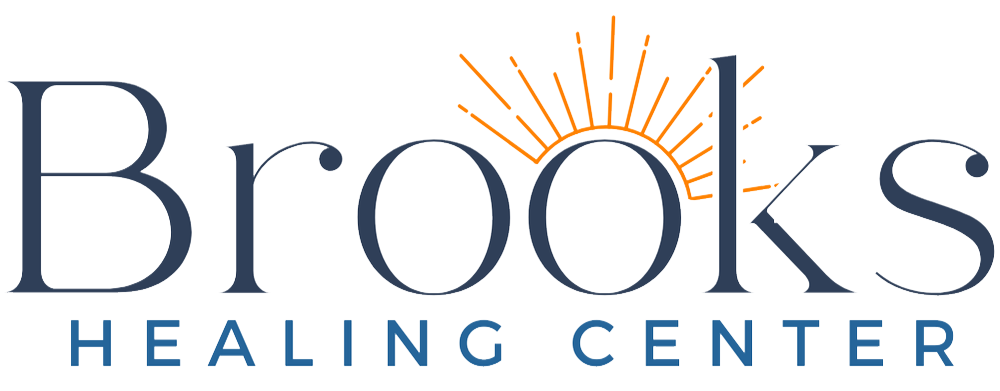On July 30, 2025, President Donald Trump introduced a new big tech led healthcare records data sharing initiative designed to give patients easier access to their medical records through major technology platforms. Over 60 companies, including Apple, Google, Amazon, OpenAI, CVS Health, and UnitedHealth—have pledged to participate in what’s being called a “patient-centered health data ecosystem.” The effort will be managed under the Centers for Medicare & Medicaid Services (CMS) and will allow individuals to voluntarily share medical data with approved platforms and apps [1][2].
At Brooks Healing Center, we stay informed about major policy changes that could affect the safety and care of individuals in recovery. A new federal health data-sharing initiative announced this week may have important implications for the treatment landscape, particularly in the areas of mental health and addiction care.
Understanding the System
The initiative is designed to help patients manage chronic health conditions through access to tools like mobile health apps, AI-based check-ins, and automated care coordination. Under the proposed structure:
- Patients must opt-in before any data can be shared.
- Approved digital tools can request health records to improve coordination, scheduling, and support services.
- The project is intended to eliminate redundant paperwork and create better data continuity between providers and care settings [1][2].
Potential Benefits for Addiction and Mental Health Treatment
For people recovering from substance use disorders or managing dual diagnoses, this kind of system could offer meaningful support when used correctly. Benefits may include:
- Better Continuity of Care
Addiction recovery often involves multiple levels of treatment: detox, residential programs, outpatient services, therapy, medication management, and alumni care. Unified access to health records could help providers understand a person’s complete treatment history and avoid duplication or harmful gaps in care. - Personalized Support Tools
Apps connected to this network might eventually offer customized support for individuals in recovery—tracking medication adherence, offering mental health check-ins, or alerting providers when someone disengages from care. - Reduced Administrative Burden
For both clients and clinicians, access to accurate records from prior treatment centers, hospitals, or mental health providers could reduce intake delays and allow for more focused care planning from day one.
Important Concerns: Privacy, Ethics, and Stigma
While the proposed system offers some promise, there are serious concerns for vulnerable populations, especially people seeking help for mental health or substance use issues.
- Stigma and Discrimination
Addiction, overdose history, behavioral health diagnoses, and medications like Suboxone or methadone are highly sensitive. If this information were accessed outside of secure systems or used inappropriately, it could lead to employment discrimination, insurance denials, or housing challenges [3][5]. - Weak Data Protections Outside of HIPAA
While hospitals and licensed treatment providers are bound by HIPAA, many of the apps and tech companies involved in this system may not be. That means patient data could be used for purposes beyond healthcare, such as behavioral profiling, targeted advertising, or predictive analytics [3][5]. - Cybersecurity Threats
A centralized or widely accessed pool of medical records creates new risks for breaches. With health information already a top target for cybercriminals, increased data flow between providers and tech platforms must be accompanied by robust cybersecurity infrastructure [5].
What This Means for Brooks Healing Center
At Brooks Healing Center, our focus remains on trauma-informed, evidence-based healing—offering therapy, dual diagnosis care, medical detox, residential treatment, and experiential programs in a serene, private environment. While we are not currently participating in the federal health-sharing initiative, we recognize how changes in the national healthcare system can impact the future of treatment delivery.
- Protect client confidentiality through HIPAA-compliant practices
- Help clients understand what personal health data is collected and why
- Monitor developments in technology and health policy to advocate for the safest and most ethical care possible
As a trauma-informed treatment center rooted in evidence-based practices, we believe all healthcare innovation must be led by ethics, transparency, and a commitment to protect the vulnerable.
FAQ’s
What is the new federal health data-sharing initiative?
It is a public–private program allowing patients to opt into a system where their electronic medical records can be accessed by approved technology platforms and digital health tools [1].
Which companies are involved?
Over 60 organizations, including Apple, Amazon, Google, OpenAI, CVS Health, and UnitedHealth Group have pledged participation [2].
Does this apply to addiction treatment records?
Yes. If an individual consents, data from past or current addiction treatment providers could be shared with apps and digital tools. This includes medications, diagnoses, and mental health notes.
Is this safe for people in recovery?
There are concerns. Addiction-related data is sensitive, and improper handling or exposure could lead to stigma or discrimination. Patients should be cautious about what they share and with whom.
Is Brooks Healing Center participating in this initiative?
No. Brooks Healing Center continues to use a private, HIPAA-compliant system and does not share patient records with third-party tech platforms. Any change in policy will always be discussed transparently with our clients.
Sources
- Euronews. (2025, July 31). Trump administration partners with Big Tech to launch health data tracking programme. Retrieved from https://www.euronews.com/next/2025/07/31/trump-administration-partners-with-big-tech-to-launch-health-data-tracking-programme
- Malwarebytes Labs. (2025, July 31). Trump Administration and Big Tech want you to share your health data. Retrieved from https://www.malwarebytes.com/blog/news/2025/07/trump-administration-and-big-tech-want-you-to-share-your-health-data


